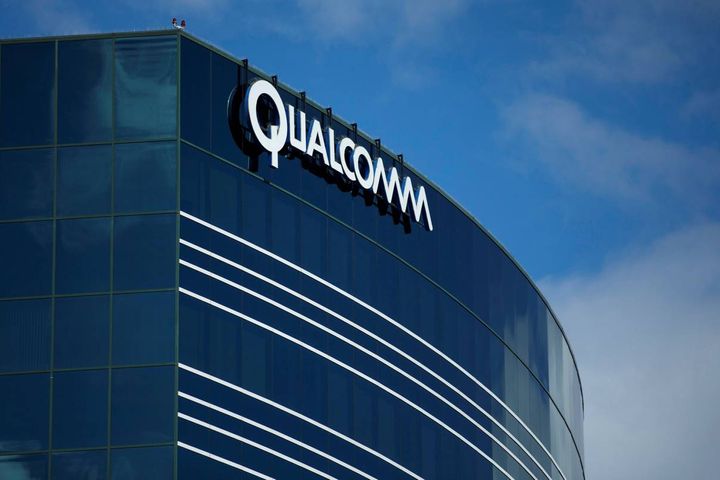 Qualcomm Sues Apple in Beijing, Seeks to Ban iPhone Sales in China
Qualcomm Sues Apple in Beijing, Seeks to Ban iPhone Sales in China(Yicai Global) Oct. 16 -- Qualcomm Inc. [NASDAQ:QCOM] filed a lawsuit against Apple Inc. [NASDAQ:AAPL] on Sept. 29 in an intellectual property court in Beijing, aiming to prohibit the latter from the production and sale of iPhones in the Chinese market.
The actual aim of Qualcomm and Apple's litigation is a fight over license fees, intellectual property lawyer Yu Yunting told Securities Daily. The two sides will also slug it out wielding anti-monopoly and anti-unfair competition laws, claims that may take three to five years to reach fruition.
Qualcomm asserts that the suit is based on three non-standard essential patents, including power management and a touch-screen technology called Force Touch that Apple currently uses on iPhones.
The battle between Apple and Qualcomm began in January, when the US Federal Trade Commission (FTC) alleged that Qualcomm forced Apple to use its baseband chips or pay higher royalties. Three days later, Apple sued Qualcomm seeking damages of USD1 billion. In response, Qualcomm accused Apple of distorting the facts, and filed a counterclaim.
The importance of the Chinese market for Apple is self-evident. Apple's earnings report shows that 22.5 percent of Apple's USD215.6 billion global revenue last year came from the Greater China market, while nearly two-thirds of Apple's revenue derived from iPhones. This is by far the biggest attack on Apple by the chip maker.
Apple responded that in the years of continuous negotiations with Qualcomm, these patents have never been discussed and in fact were only granted in the last few months. "Regulators around the world have ruled that Qualcomm has overused its status over the years. This claim is meritless, and we believe like Qualcomm's other courtroom maneuvers, this legal action will fail in the end," it said.
The reason that Qualcomm has made such a big move is because of the great pressure under which the company finds itself, Wang Yang, director of China Research at IHS Technology told Securities Daily.
Although most of Qualcomm's sales come from the production of mobile phone chips, its profits come mainly from royalties, and these patents cover the essential technologies of all modern mobile phone systems. Analysts note that Qualcomm should have received about USD2 billion in royalties each year from Apple, but the adverse effects of Apple litigation induced Apple factories to withhold payment of the expected royalties and the cost to Qualcomm in last year's third quarter was USD700 million.